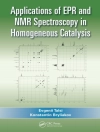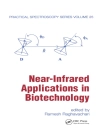The issue of quality assurance in the analytical chemistry laboratory has become of great importance in recent years.
Quality Assurance in Analytical Chemistry introduces the reader to the whole concept of quality assurance. It discusses how all aspects of chemical analysis, from sampling and method selection to choice of equipment and the taking and reporting of measurements affect the quality of analytical data. Finally, the implementation and use of quality systems are covered.
Table des matières
Series Preface.
Preface.
Acknowledgements.
Acronyms, Abbreviations and Symbols.
About the Authors.
1. The Need for Reliable Results.
2. General Principles of Quality Assurance and Quality
Control.
3. Sampling.
4. Preparing for Analysis.
5. Making Measurements.
6. Data treatment.
7. Benchmarking Your Laboratory.
8. Documentation and its Management.
9. Managing Quality.
Appendix:Two-Tailed Critical Values for Student t-Tests.
Responses to Self-Assessment Questions.
Bibliography.
Glossary of Terms.
SI Units and Physical Constants.
Periodic Table.
Index.
A propos de l’auteur
Elizabeth Prichard obtained a first degree in Chemistry from the University lege of Wales, Aberystwyth, where she went on to obtain her doctorate studying infrared spectroscopy. After a Civil Service Research Fellowship, she moved into academia, initially at Bedford College and then Royal Holloway and B Bedford New College, University of London before moving to the University of Warwick as a Senior Research Fellow. While at London University, she continued her research in spectroscopy, as well as some work in biophysical chemistry. At the University of Warwick, she researched the release profiles of steroids from implanted contraceptive devices. During her time at London University, Elizabeth spent sabbatical periods at the Division of Materials Application NPL, the Biophysics and Biochemistry Department, Wellcome research Foundation, Beckenham and then as Associate Professor sponsored by the British Council at the University of Gezira and at the University of Khartoum, Sudan.
Vicki Barwick obtained a first degree in Chemistry from the University of Nottingham. She then joined the Laboratory of the Government Chemist (which became LGC in 1996) as an analyst in the Consumer Safety Group. Vicki was involved with a number of projects to assess the safety of consumer products, including developing test methods for the identification of colorants in cosmetics and the quantitation of phthalate plasticizers in child-care items.
After five years as an analyst, Vicki moved within LGC to work on the DTI-funded Valid Analytical Measurement (VAM) programme. In this role, responsible for providing advice and developing guidance on methods validation, measurement uncertainty and statistics. One of her key project involved the chemical test methods. During this time, Vicki also became involved with the development and delivery of training courses on topics such as method validation, measurement uncertainty, quality systems and statistics for analytical chemists.












